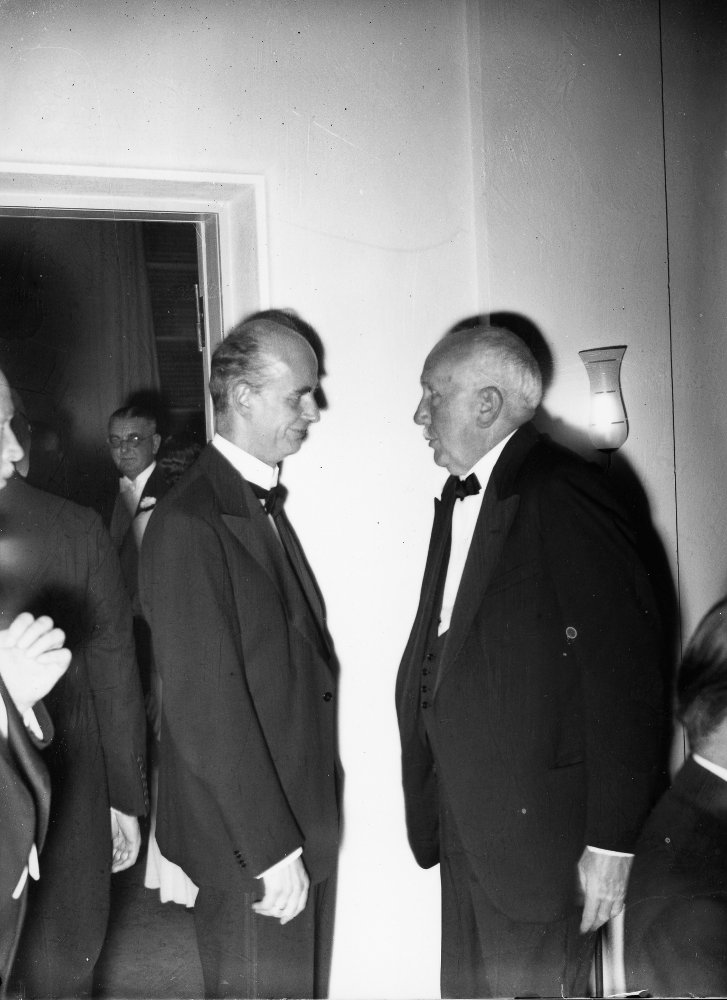Richard Strauss war der Sohn des Hornisten, Komponisten, Musikpädagogen und Akademieprofessors Franz Strauss, seine Mutter Josephine stammte aus der Bierbrauer-Dynastie Pschorr, einer der reichsten Familien Münchens. Vom vierten Lebensjahr an vom Vater unterrichtet, begann er mit elf ein Musiktheorie-Studium beim Hofkapellmeister Friedrich Wilhelm Meyer. 1881 erschienen seine ersten Kompositionen. Ein Studium der Philosophie und Kunstgeschichte an der Universität München brach Strauss bald ab, um sich ganz dem Komponieren zu widmen.
Er trat in den Münchner Orchesterverein ‚Wilde Gungl‘ ein und gab im Alter von 20 Jahren sein Dirigentendebüt. 1885 wurde er dank seines Mentors Hans von Bülow Kapellmeister am Hoftheater in Meiningen. Im Jahr darauf entschied er sich zur Rückkehr nach München, um 3. Kapellmeister an der Staatsoper zu werden, außerdem war er von 1889 an Großherzoglicher Kapellmeister am Hoftheater Weimar. Von 1898 bis 1918 wirkte er als Hofkapellmeister in Berlin. In diese Zeit fallen unter anderem seine Opernerfolge Salome (1905), Elektra (1909) und Der Rosenkavalier (1911), die ihn damals zum Inbegriff der musikalischen Moderne und bis heute zu einem der bedeutendsten Komponisten machen. Früh setzte sich Strauss auch für die Rechte seiner Zunft ein, er war Mitbegründer der Genossenschaft der deutschen Tonsetzer und übernahm 1901 den Vorsitz des Allgemeinen Deutschen Musikvereins (ADM). Zusammen mit Franz Schalk übernahm er 1919 die Leitung der Wiener Hofoper, die er bis 1931 innehatte.
Nach 1933 ließ sich Strauss, dessen Schwiegertocher Jüdin war, von den Nationalsozialisten vereinnahmen. Schon im April 1933 gehörte er zu den Unterzeichnern des ‚Protests der Richard-Wagner-Stadt München‘ gegen Thomas Mann, am 15.11.1933 wurde er Präsident der Reichsmusikkammer. Er verfasste etliche lobende Grußworte an NS-Größen, dirigierte bei repräsentativen NS-Veranstaltungen und komponierte die Olympische Hymne 1936. Hitler setzte ihn als einen der drei wichtigsten Musiker auf seine persönliche Gottbegnadeten-Sonderliste. Allerdings war Strauss bereits 1935 wegen eines von der Gestapo abgefangenen Briefs an den jüdischen Autor Stefan Zweig in Ungnade gefallen und hatte seine NS-Ämter abgegeben. Die Kriegsjahre verbrachte er mit seiner Familie unter dem Schutz des befreundeten Gauleiters Baldur von Schirach in Wien.
Nach dem Krieg ging Strauss wegen seines von den Alliierten ausgesprochenen Berufsverbots vorübergehend in der Schweiz, kehrte aber 1949 nach einer Einstufung als ‚nicht belastet‘ im Spruchkammerverfahren in sein Haus in Garmisch-Partenkirchen zurück. Dort starb er am 8.9. desselben Jahres.


